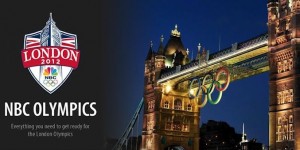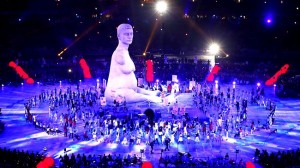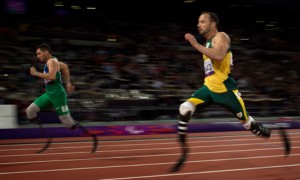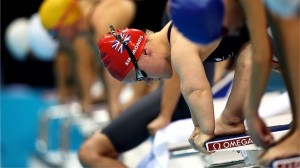No network has been criticized more for its coverage of any event than NBC has been for its coverage of the London Olympics. The criticism has everything to do with NBC’s decision to broadcast premier events on tape delay.
 What critics fail to appreciate, however, is that NBC paid handsomely for the exclusive rights to broadcast the Olympics as a business undertaking, not as a public service. And in this context, the time difference between the United States and London left the network no choice.
What critics fail to appreciate, however, is that NBC paid handsomely for the exclusive rights to broadcast the Olympics as a business undertaking, not as a public service. And in this context, the time difference between the United States and London left the network no choice.
After all, had NBC carried them live, the premier events would have been broadcast in the United States during working hours, guaranteeing relatively low ratings in a business where the higher the ratings, the greater the profits.
On the other hand, NBC clearly calculated that, even if viewers already knew the results (e.g., of a race featuring Usain Bolt or Michael Phelps), they would still want to see how that race unfolded. And, given that its tape-delayed broadcasts garnered the highest ratings for any Olympics in history, nobody can gainsay the soundness of NBC’s business decision.
Which brings me to its coverage (or lack thereof) of the London Paralympics that ended on Sunday.
 I have no idea how much NBC paid for the exclusive rights. But it’s an indication of the level of interest NBC banked on that it contracted to provide 3,500 hours of Olympic coverage, but only 6 hours of Paralympic coverage.
I have no idea how much NBC paid for the exclusive rights. But it’s an indication of the level of interest NBC banked on that it contracted to provide 3,500 hours of Olympic coverage, but only 6 hours of Paralympic coverage.
Unsurprisingly, people are criticizing the network for this limited Paralympics coverage, almost as much as they were criticizing it for broadcasting the Olympics on tape delay. What’s more, much of the criticism in this case is laced with accusations about discriminating against people with disabilities. Even I joined friends in venting reflexive, high-minded outrage.
Upon reflection, however, I believe criticisms in both cases are as unfair as they are uninformed. For I suspect exhaustive market research indicated that interest would be such that broadcasting any more than 6 hours would be a waste of capital resources.
More to the point, I can personally attest that NBC made the right decision in both cases. Because I was so eager to know the results of premier events at the Olympics that I went out of my way to find them online. Moreover, my interest was such that, just as NBC calculated, knowing the results did nothing to diminish my interest in seeing its tape-delay broadcasts.
 By instructive contrast, I’m ashamed to admit that the only time I became interested in anything related to the Paralympics was when the poster boy for these Games, Oscar Pistorius, suffered a surprising upset in the men’s 200m. And this was only because Pistorius received so much media attention during the Olympics for being the first double amputee to participate.
By instructive contrast, I’m ashamed to admit that the only time I became interested in anything related to the Paralympics was when the poster boy for these Games, Oscar Pistorius, suffered a surprising upset in the men’s 200m. And this was only because Pistorius received so much media attention during the Olympics for being the first double amputee to participate.
Indeed, the greater is my shame that nothing but schadenfreude stoked my interest in actually seeing him humbled. In other words, what business did he have participating in the Olympics if he was not even good enough to win in the Paralympics? I even took perverse interest in the way Pistorius made a mockery of his highly touted sportsmanship by crying sour grapes about the length of the other runner’s blades after his loss….
At any rate, I’m not sure what it says about me that I was so interested in watching 3,500 hours of the Olympics, but so uninterested in watching just 6 hours of the Paralympics, let alone searching the Internet for timely results.
I have family members with disabilities. Therefore, I fully appreciate that the last thing Paralympians want is for their performances to evoke sympathy or, even worse, pity. Except that, as admirable and life affirming as their performances might be, a confluence of sympathy and pity is all I feel when I see people with disabilities competing in sporting events.
Mind you, I think it’s great that attendance at Paralympic events rivaled that at Olympic events. Never mind that attendance at the former probably had more to do with overflowing British pride from the latter than with any interest in the performance of Paralympians.
 For example, I would bet my life savings that 99 percent of you who tuned in to the Olympics did so to watch Michael Phelps and/or Usain Bolt compete. On the other hand, I challenge you to name a Paralympian (not a relative or friend) who you wanted to watch compete.
For example, I would bet my life savings that 99 percent of you who tuned in to the Olympics did so to watch Michael Phelps and/or Usain Bolt compete. On the other hand, I challenge you to name a Paralympian (not a relative or friend) who you wanted to watch compete.
Not to mention that people who rave about the performance of athletes with disabilities always come across like annoying parents raving about the first baby steps of their children. Which is why much of the celebration of the Paralympic Games strikes me as patronizing, disingenuous, and even a little guilt-ridden.
I don’t know if this constitutes discrimination on my part. What I do know, however, is that hundreds of millions of people feel as I do. Which is why nobody should criticize NBC for making the undeniably sound business decision to provide such limited coverage of the Paralympics.
Finally, from the sublime to the ridiculous, I was shocked to learn that British band Cold Play commandeered the Closing Ceremony for the Paralympics on Sunday by playing what can only be described as a self-indulgent set of 15 songs. And having Rihanna and Jay-Z make cameo appearances only magnified their ego trip.
It would’ve reeked of craven self-promotion if they had performed just 5 songs; but 15?!
Coldplay took centre stage at the Closing Ceremony for the Paralympics – prompting anger from some spectators who wondered why the athletes weren’t the stars of the show… Some of the show’s audience felt they outstayed their welcome.
(Daily Mail, September 9, 2011)